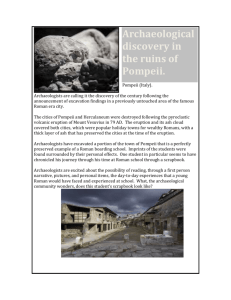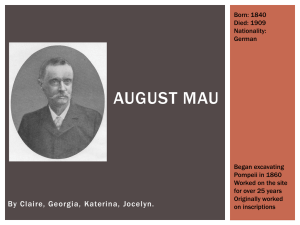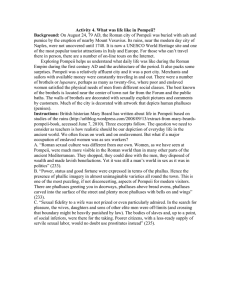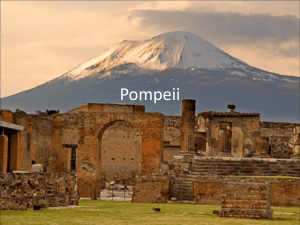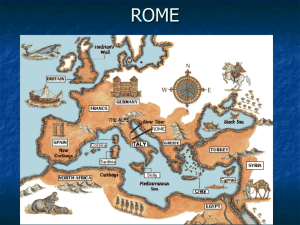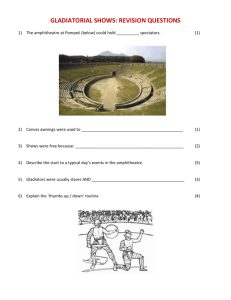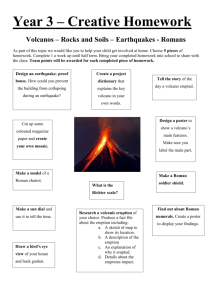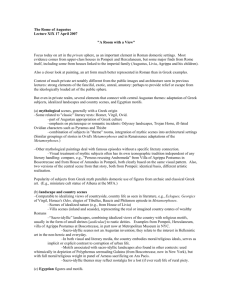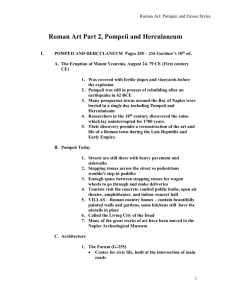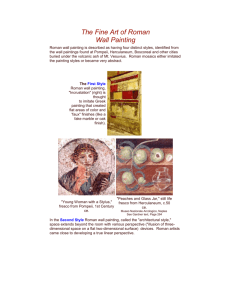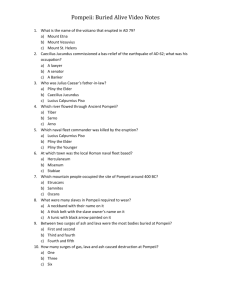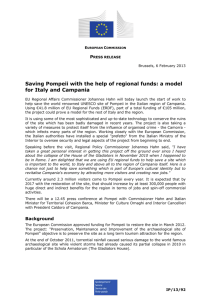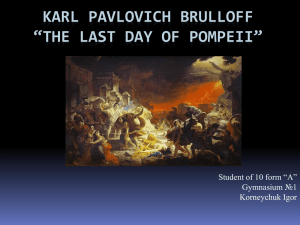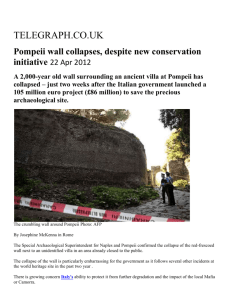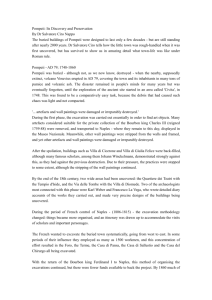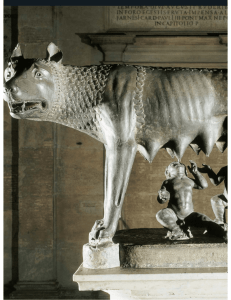DBQ - Daily Life - Hinsdale South High School
advertisement
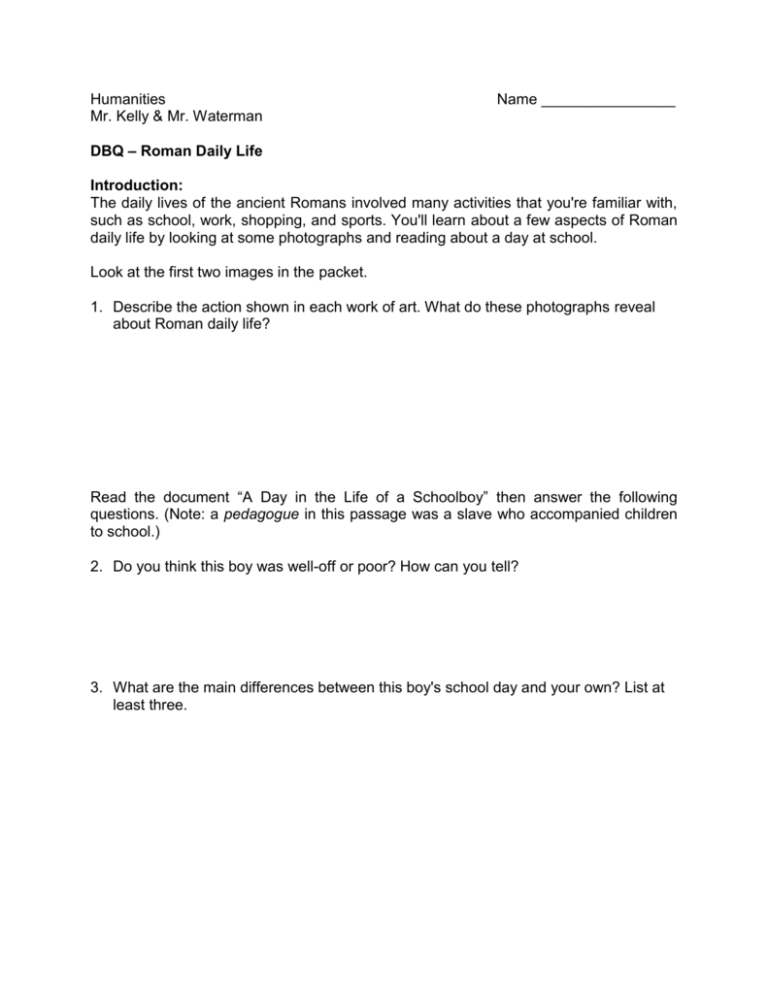
Humanities Mr. Kelly & Mr. Waterman Name ________________ DBQ – Roman Daily Life Introduction: The daily lives of the ancient Romans involved many activities that you're familiar with, such as school, work, shopping, and sports. You'll learn about a few aspects of Roman daily life by looking at some photographs and reading about a day at school. Look at the first two images in the packet. 1. Describe the action shown in each work of art. What do these photographs reveal about Roman daily life? Read the document “A Day in the Life of a Schoolboy” then answer the following questions. (Note: a pedagogue in this passage was a slave who accompanied children to school.) 2. Do you think this boy was well-off or poor? How can you tell? 3. What are the main differences between this boy's school day and your own? List at least three. 4. Why do you think this boy wrote about his day at school? The Roman city of Pompeii was buried by the devastating eruption of Mt. Vesuvius in 79 CE. While the eruption was a disaster for Pompeii's residents; it has been a blessing to modern historians and archaeologists who are interested in Roman daily life. Because the volcano erupted so suddenly and covered the city so rapidly, Pompeii's ruins are well preserved and allow us to peek into the lives of the people who lived there. Look at the last photo in the packet. This photo shows an aerial view of Pompeii's Forum, the central market and government area where people conducted their business and met for religious and government activities. Answer the following questions: 5. Describe the layout of this part of Pompeii. What do you think the larger areas might have been used for? 6. What do you think the smaller areas might have been used for? 7. Do you think this was probably a busy place? How can you tell? Shoemaker at Work Roman Charioteer A Day in the Life of a Schoolboy I awoke before dawn; I arose from my bed; I sat down and put on my socks and shoes. I requested water for my face; I washed my hands first and then my face; I wiped them dry. I took off my sleeping clothes and put on my tunic; I did up the belt. I greased down my hair and combed it. I put a scarf around my shoulders; on top of that I put a white cloak, and over that a rain mantle. I left my bedroom with my pedagogue and nurse and went to greet my father and mother; I greeted them both and kissed them. Then I left home. I went to school. I entered and said, "Hello, teacher," and he kissed me and greeted me in return. My slave who carries my books handed me my waxed tablets, my writing box, and my writing instruments. Sitting in my place, I smoothed over the tablets. I printed the assigned sentence. When I had finished it, I showed it to the teacher. He corrected it, wrote over my errors, and bid me to read it aloud. Having been bidden, I recited it to another student. Immediately afterward a fellow student dictated to me. "And you," he said, "dictate to me." I said, "First recite." And he dictated to me, "Didn't you see? I recited before you did" I said, "You're lying; you didn't recite." "I'm not lying!" "Well, if you're telling the truth, I will dictate." In the midst of this quarrel, the little boys, who were so bidden by the teacher, lined up in two groups for their elementary exercises; one of the older boys gave one group of them syllables to spell. The other group recited word lists, in order, to the assistant teacher; they print the words and then print lines of verse. I, who am in the advanced class, was given a dictation exercise. When we sat down, I went through my word lists and notes on grammar and style. Called up to the head teacher to read aloud, I listened to his comments on narration, speech construction, and characterization. I was questioned about grammatical theory, and I gave my answers. "Do you say 'to whom'?" "What are the parts of a speech?" I declined nouns and parsed sentences. When we had finished this, the teacher dismissed us for lunch. After being dismissed, I came home. I changed clothes and ate some white bread, olives, cheese, dried figs, and nuts. I drank cold water. After lunch I returned to school. Source: Jo-Ann Shelton, As the Romans Did: A Sourcebook in Roman Social History (New York: Oxford University Press, 1988), 113-114. The Forum of Pompeii
